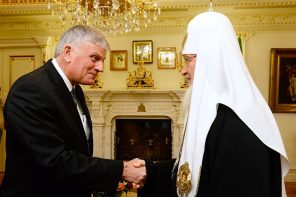Sociologist Darren Sherkat of Southern Illinois University has taken a close look at the General Social Survey data and found that in 2010, for the first time, more Americans support than oppose same-sex marriage.
Sherkat reported these findings in his blog:


When you look at that graph, the shift is dramatic; in 1988, just 22 years ago, only 12% of Americans supported gay marriage. In 2010, it was 46%, with only 40% opposed. And it’s even a big shift from 2008 to 2010: support went up seven points, and opposition trended downward seven points.
Sherkat tells me:
There are no other scientific surveys which have asked questions about same sex marriage over a long period of time. The only other remaining scientific general population surveys are the National Election Surveys, and I don’t think they ever asked a question about that (or if they did it was only in the 2008 version). I can’t stress this enough.
In other words, the GSS is the only survey that shows these trends over time, using face-to-face surveys of respondents (as opposed to telephone polls).
Sherkat performed the analysis on the GSS data following the publication of his 2010 paper, “Religion, politics, and support for same-sex marriage in the United States, 1988–2008,” published in Social Science Research. That paper concluded (as the above data through 2008 showed) that public opinion was indeed trending upward for support for same-sex marriage and downward for opposition, and noted, “Our findings suggest that in a little over a decade the majority of Americans will support the legalization of same-sex marriage.” While the 2010 data doesn’t show an over-50% majority, it does show, far more quickly than Sherkat expected, support outpacing opposition.
Still, though, Sherkat’s paper raises questions about the well-worn myth that younger generations of conservative Christians are more tolerant of LGBT rights:
While some scholars have claimed that younger generations of conservative Christians are increasingly tolerant on issues of sexuality . . . we found that the gap between sectarian Protestants, fundamentalists, and people with other or no faith commitments actually grew. Much public commentary has amplified the apparent moderation of younger conservative Christians, particularly with Rick Warren (a popular conservative Christian televangelist minister) replacing figures like James Dobson and Jerry Falwell as the spokesperson for conservative Christianity. However, even self-professed moderates like Warren oppose the legal recognition of same-sex marriage, and believe that homosexuality is a sinful purposeless activity with dire eternal consequences.
In other words, while Sherkat found a correlation between youth and tolerance for LGBT rights, that trend was not borne out among younger Republicans and Christian conservatives:
[S]hifts in support for same-sex marriage were much greater for respondents born after 1945. Indeed, in every cohort born after 1945, there was significant liberalization between 1988 and 2006–08 – at least for respondents who are not sectarian Protestants or Republicans. Cohort replacement is likely to play a strong role in overall value change in the future. The most conservative cohorts were born before 1940, and these cohorts constituted only 14% of the sample by 2008 – down from 38% of the sample in 1988. Further, the most liberal cohorts, those born after 1965, now comprise 43% of GSS respondents. Still, even in later cohorts, there is substantial, entrenched, opposition to same-sex marriage, and opposition to same-sex marriage in the younger cohorts is rooted strongly in religious and political identifications.
(emphasis added). Overall, attitudes are indeed shifting. But the zealousness of political and religious conservatives to continue to battle LGBT rights, even facing an absence of overall public support, makes it unlikely that they will retreat anytime soon.




